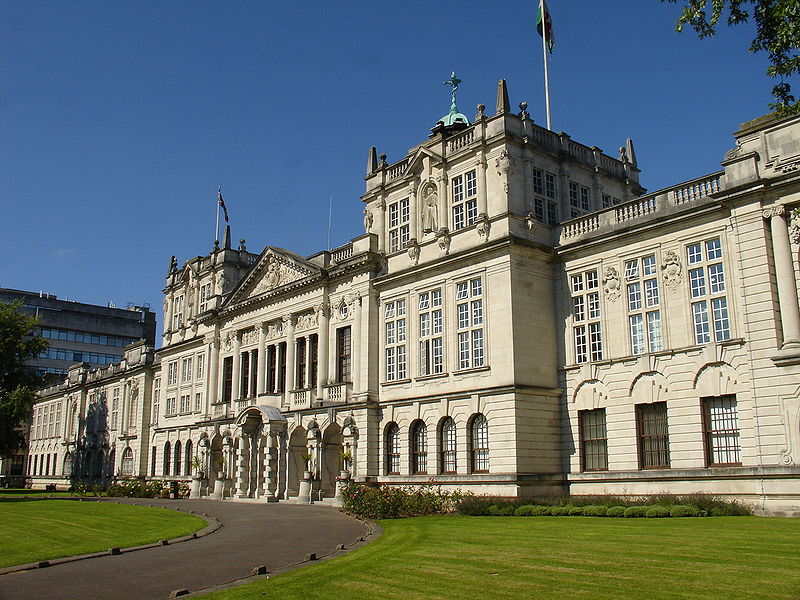Rhia Danis looks at the future of climate migration and the impact that this will have on Wales.
As global temperatures increase, weather patterns become more extreme, and sea levels continue to rise, the impact of global heating on ecosystems around the world is becoming increasingly apparent. One of the most devastating consequences of this is the displacement of millions of people from their homes and communities, turning them into climate refugees. The climate emergency knows no borders, and some communities in the UK are already feeling its effects.
In Wales, too, the consequences of climate change have begun. Flooding is a consistent problem for Wales’ coastal towns, damaging local businesses and homes. The rise in storms like Storm Dennis and Storm Ciara have displaced thousands and destabilised several communities. Now, the inhabitants of Fairbourne in Gwynedd are set to be the UK’s very first climate refugees.
Fairbourne is a small coastal village in Gwynedd, Wales, and has been identified as one of the most vulnerable areas to climate change in the country. Located on the west coast of Wales, it is at risk of flooding, erosion, rising sea levels, and extreme weather events. The community of Fairbourne is already experiencing the impacts of climate change, and the situation is expected to worsen and eventually become uninhabitable.
The village is built on a narrow strip of land between the mountains of Snowdonia and the sea. With sea levels expected to rise by up to 2 metres by the end of the century, Fairbourne is at growing risk of being submerged into the sea. They are also facing increased erosion which is causing damage to the infrastructure and homes in the area. The erosion is caused by storm surges and waves which are becoming more frequent and more severe.
The area is known for its agriculture and tourism industries, both of which are being impacted by climate change. Changes in weather patterns, such as increased rainfall and higher temperatures, are affecting crop yields and causing damage to local businesses.
The community of Fairbourne has been taking steps to mitigate the impacts of climate change but struggle due to a lack of resources and funding. In 2013, the Welsh government announced that Fairbourne would be abandoned due to the impacts of climate change, with the village’s residents being relocated to safer areas. However, the community has been fighting back against this decision, arguing that the government has not provided adequate support to help them adapt to the changing environment. The community has been calling for more investment in infrastructure, such as sea defences and flood prevention measures, as well as support for businesses and individuals who are being impacted by climate change.
A report by Al Jazeera estimates that by 2050, as many as 216 million people could be displaced by the effects of climate change. This is a humanitarian crisis of enormous proportion, and requires a comprehensive and coordinated response. While there are many different approaches that can be taken to address the issue of climate displacement, one points to the need for safe and legal routes to migration to be established for climate refugees.
Discussions and debates that drive Wales forward.
Join Wales’ leading independent think tank.
Migration can provide a vital safety valve for communities that are directly facing the impacts of climate change. By moving to areas where the environmental and economic conditions are more favourable, people can escape the effects of natural disasters such as droughts, floods, and hurricanes. This can provide them with a new start, and a chance to rebuild their lives.
However, migration is not a simple solution to the problem of climate displacement. There are many barriers to migration including legal and political restrictions, economic conditions, and social and cultural factors which create a hostile environment for migrants.
Migration can provide a vital safety valve for communities that are directly facing the impacts of climate change
This requires a comprehensive approach that takes into account the complex and interrelated factors that drive migration, such as poverty, conflict, and human rights violations. The Welsh Government has taken a number of steps to address the issue of climate displacement. It has established a dedicated Climate Change Committee to provide advice and guidance on how best to tackle the issue and has developed a comprehensive action plan to reduce emissions and build resilience against the impacts of climate change. So far, the Welsh Government has invested £54 million in coastal risk and flood management and introduced new legislation which demands sustainable drainage standards be met in new developments across Wales. Their longer term plans include focusing on ‘nature-based solutions’ in regards to flood prevention strategies, and implementing a measure for coastal-groups to report to the Government annually in the national strategy for coastal risk management.
Whilst the current UK Government practises a hostile environment towards migration, the Senedd has a history of welcoming migrants and has taken steps to solidify its commitment in providing a safe haven for those in need. This includes the Wales Strategic Migration Partnership, under which the Welsh Government provides funding to help coordinate refugee schemes. Following the recent influx of Ukrainian refugees, the Welsh Government piloted the Welcome Ticket scheme to ensure free public transport for all refugees and champion integration.
In 2017, Wales became the first nation in the UK to be declared a ‘Nation of Sanctuary,’ a recognition of its efforts to welcome and support refugees and asylum seekers. One of the most significant benefits of welcoming refugees and asylum seekers is that they, alongside local authorities and groups, can build resilient and more diverse communities. This can bring new ideas and skills into the area, enriching the cultural fabric of the community, as seen through their additional Cities of Sanctuary Programme.
By becoming a City of Sanctuary, a city or town is demonstrating its leadership and compassion in response to one of the most pressing humanitarian issues of our times. This can inspire others to act and make a positive difference. Some may view migration as a threat to Welsh culture, whilst others see it as an opportunity to embrace diversity and strengthen Welsh identity, particularly as a devolved nation.
One key step that can be taken to support communities in Wales, including migrant communities, is to invest in programmes that help people to adapt to new environments. This includes providing support for education, job training, and health care; this can help people rebuild their lives.
In addition to these measures, it is important for the Welsh Government to engage with communities at risk of displacement, like Fairbourne, to understand their needs and concerns. This can help to ensure that policies and programmes are developed in a way that is responsive to the needs of these communities, and that they are able to participate in decision-making processes that affect their lives. This includes actively partaking in developing policy changes, voting, focus groups and discussions.
Migration can play an important role in addressing the humanitarian crisis of climate displacement. By providing support to people most at risk, like those in Fairbourne, and investing in programmes that help people to rebuild their lives, we can help to mitigate the devastating impacts of climate change on the lives of people in Wales.
All articles published on the welsh agenda are subject to IWA’s disclaimer.
This article was commissioned and edited by Maisie Allen, thanks to the Book Council of Wales’ New Audiences Fund.





